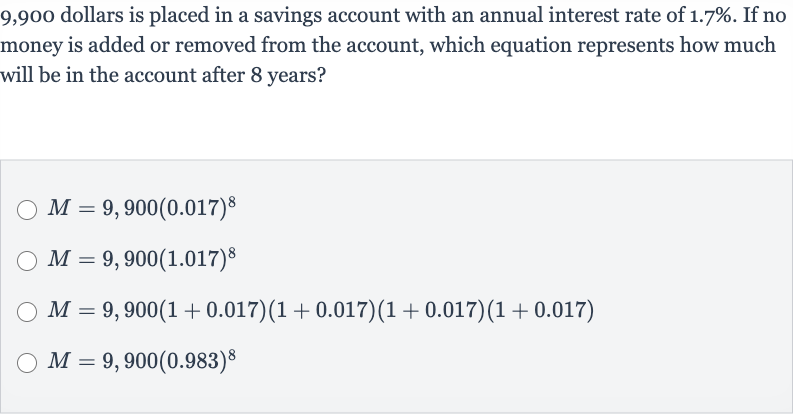Full solution
Q. , dollars is placed in a savings account with an annual interest rate of . If no money is added or removed from the account, which equation represents how much will be in the account after years?
- Use Compound Interest Formula: To find the total amount in the account after years with compound interest, we use the formula for compound interest: , where is the amount of money accumulated after years, including interest, is the principal amount (the initial amount of money), is the annual interest rate (decimal), is the number of times that interest is compounded per year, and is the time the money is invested for in years.
- Identify Given Values: In this problem, , or as a decimal, (since the interest is compounded annually), and years. We need to plug these values into the compound interest formula.
- Substitute Values: Substituting the given values into the compound interest formula, we get .
- Simplify Equation: Simplify the equation to get .
- Final Account Amount: Further simplifying, we get . This is the correct equation that represents how much will be in the account after years.
More problems from Add, subtract, multiply, and divide decimals: word problems
QuestionGet tutor help
QuestionGet tutor help
QuestionGet tutor help
QuestionGet tutor help
QuestionGet tutor help
QuestionGet tutor help
QuestionGet tutor help

